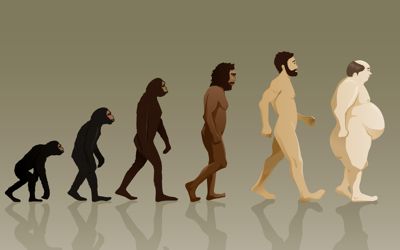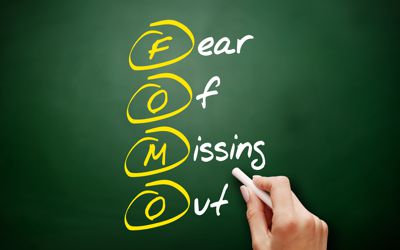Ep #7 How to Manage Food Cravings

Food cravings are the desire to eat a specific food even though you aren’t hungry. Typically, people crave foods high in sugars or highly processed carbohydrates like cake, bread, chips and candy. These foods are nutrient dense, which facilitates an exaggerated release of feel-good neurotransmitters like dopamine. The release of these feel-good neurotransmitters is why we crave and often overindulge in foods that don’t serve our body. During this podcast, Dr. Vaughn discusses how to recognize food cravings versus “real hunger” and provides strategies for effectively managing these cravings.
Ep #33 Natural vs. Artificial Pleasure

When you have a bad day, we often look for ways to buffer away negative emotions. Sometimes buffering is accomplished through seeking out natural pleasures, such as accomplishment or exercise. However, often we turn to artificial pleasures that don’t serve our bodies or goals. During this podcast, I discuss the differences between natural and artificial pleasures, and how to know the difference. This podcast is the last DelaneMD weight loss podcast. Watch for my next podcast series on reversing Type 2 Diabetes naturally, which will be released in 2 weeks.
Ep #32 Why Feeling Bad is Necessary for Success

Sometimes the process of achieving our goals doesn’t feel good. Even when we apply the thought model and recognize that tough decisions will serve our bodies, it does not feel wonderful. When sticking with your plan, you may want to feel resolved, confident or even determined, but ultimately this may not be a positive emotion. During this podcast, I discuss my experience buffering emotions and why accepting negative emotions are necessary to achieve goals.
Ep #30 My Philosophy: Living Naturally Healthy

What we eat is making us sick. Walk down the grocery store isle and you’ll see labels saying healthy, organic or no added sugars. While these marketing messages are enticing, they are not accurate. Most food is highly processed, unhealthy and doesn’t naturally occur in nature. In fact, human beings are the only animal that doesn’t eat foods that are naturally produced by the earth. This practice of eating highly processed foods is the primary cause of most preventable disease, such as diabetes and hypertension. During this podcast, I discuss my philosophy on food and being healthy by eating naturally.
Ep #29 Honor Your Plan: Making Decisions Ahead of Time

Developing food plans in advance is an important technique for achieving permanent weight loss and improved health. Unfortunately, sticking to your food plan can be challenging. Distractions, stress at work or home, and unexpected circumstances cause us to justify “eating on the fly” or “making decisions on a whim.” During this podcast, I discuss the importance of developing a food plan in advance and how your thoughts influence sticking to your plan. I also give real-life examples from when I worked in the hospital and often made food choices on a whim.
Ep #28 Top 5 Things you Must Do for Weight Loss

When it comes to losing weight and improving health, many people invest in strategies that work initially but eventually fail. This is because often the first 20 pounds and the last 20 pounds aren’t lost using the same strategy. After evaluating my weight loss journey and my client’s experiences, I’ve compiled a list of the top 5 strategies my most successful clients have in common. Using these strategies, my clients have shed pounds permanently. During this podcast, I discuss each of these 5 strategies in depths and provide examples.
Ep #27 The Ultimate Cause of Overweight and Obesity

When it comes to any problem, there are proximate and ultimate causes. The proximate cause is the event most obviously or immediately responsible for an outcome. In contrast, the ultimate cause is the higher-level cause and often the “real” reason the problem occurred. When it comes to the problem of losing weight, we often focus on proximate causes because it’s easier or more obvious. The proximate cause of being overweight or obese is overeating. The ultimate cause, however, is the underlying thoughts that drive us to want and desire foods that don’t serve our body. During this podcast, I discuss the concept of proximate versus ultimate cause and how coaching can help dig into the underlying thoughts that drive weight gain.
Ep #26 Practice: The Myth of the Savant

With any new skill, practice is necessary. In fact, consistent practice over a long period of time is the only way to become proficient and eventually master your new skill. As a nurse, for example, it takes countless times starting an IV before you feel confident in your proficiency. For me, this process also took a personal commitment and the realization that it wouldn’t be perfect the first, second or fiftieth try. This is the same with weigh loss. Learning to eat foods that serve our bodies is a new skill that needs to be practiced before it’s perfected. During this podcast, I discuss the process of practicing and the myth of the savant. I also use my own experience with meditation as an example of how mastering a new skill takes time.
Ep #25 Should Happens: Managing Our Thoughts

When it comes to life, we all have opinions on what should or shouldn’t happen. Poverty, disease, crime, car accidents and inconsiderate people are just a few examples of negative circumstances that impact us daily. It’s our thoughts about these situations that cause us to feel victimized or helpless. When our thoughts about a situation create feelings of helplessness or sadness, we often turn to food or other vices to buffer away negative emotions. In this podcast, I suggest our thoughts about negative circumstances are the problem and discuss how looking critically at our thoughts, challenging fixed beliefs and gaining a new perspective can help us overcome challenging situations. In addition, I discuss how the entitled thought that “bad stuff shouldn’t happen to us” is unrealistic and undermine our goals.
Ep #24 Scarcity: Do You Have FOMO?

As we’ve discussed, thoughts drive feelings, actions and results. The fear of missing out, or FOMO, is a feeling derived from the thought that food is scarce. This scarcity mindset creates feelings of fear that causes us to make choices that don’t serve our bodies. For example, when faced with the summer barbecues or restaurant menus that temps us with goodies we didn’t plan to eat, we tell ourselves “this is the only time that food is available to us.” This scarcity mentality causes us to worry that we are missing out on a special food. Feelings of fear typically drive actions that are not consistent with long term goals. During this podcast, I discuss the scarcity mentality and offer alternative approaches to dealing with expected and unexpected situations.

